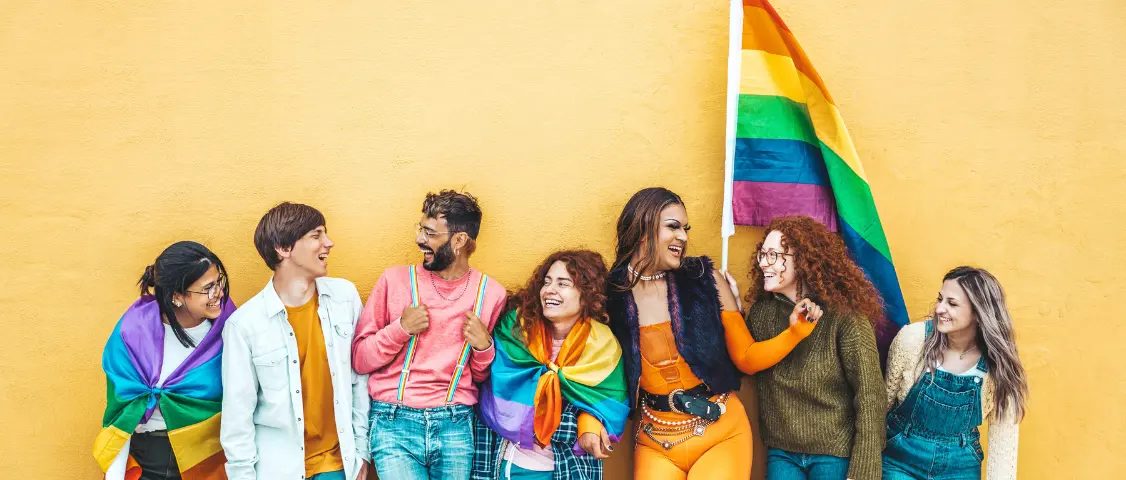Over the past three decades, therapy for the LGBTQIA+ community has undergone significant transformations, reflecting broader societal shifts towards acceptance and understanding of LGBTQIA+ identities. This evolution can be observed in several key areas, including the approach to therapy, the understanding of LGBTQIA+ issues, and the legal and social recognition of LGBTQIA+ rights.
1. Shifts in Psychological Perspectives
In the early 1990s, the approach to LGBTQIA+ individuals in therapy was often pathologizing, with a significant focus on sexual orientation as a core aspect of one’s identity that needed addressing. Homosexuality was only removed from the American Psychiatric Association’s Diagnostic and Statistical Manual of Mental Disorders (DSM) as a mental illness in 1973, but the residual effects of this classification lingered into the 90s. Therapy, during this period, often focused on ‘managing’ sexual orientation rather than understanding and supporting the individual.
Since then, there has been a pivotal shift towards affirmative therapy, which emphasizes the normalcy of LGBTQIA+ identities and focuses on the individual’s well-being without trying to ‘change’ their orientation or gender identity. This approach recognizes the varied experiences of LGBTQIA+ individuals and supports them in a holistic and validating manner.
2. Increased Specialization and Training
Originally, few therapists specialized in LGBTQIA+ issues, and general awareness among mental health professionals was limited. Over the years, training for therapists began to increasingly include topics relevant to the LGBTQIA+ community, such as understanding the impacts of minority stress, the importance of gender-affirmative care for transgender clients, and the intersectionality of identities. This has led to a growing cadre of professionals who are not only sensitive to LGBTQIA+ issues but also specialize in them.
3. Broader Societal Acceptance
The last 30 years have seen significant societal changes that reflect and influence therapy for the LGBTQIA+ community. The legalization of same-sex marriage, increased visibility of LGBTQIA+ individuals in media and politics, and greater public support for LGBTQIA+ rights have contributed to a more accepting environment. This broader acceptance has reduced the stigma around seeking mental health support and encouraged more tailored and effective therapeutic approaches.
4. The Role of Technology
The advent of technology has also dramatically changed therapy for the LGBTQIA+ community. With the rise of teletherapy platforms and online support groups, access to LGBTQIA+-affirmative therapists has expanded, particularly for those in rural or conservative areas where such resources may be scarce. Furthermore, the internet has provided invaluable resources for self-education and community building, which play supportive roles in the mental health of LGBTQIA+ individuals.
5. Intersectionality and Diverse Identities
Modern therapy increasingly recognizes the importance of intersectionality—the way different aspects of a person’s identity (race, ethnicity, gender, sexuality, etc.) combine and affect their experiences. Therapists today are more aware of how these intersecting identities can impact the mental health of LGBTQIA+ clients and tailor their approaches accordingly.
Conclusion
The last 30 years have brought about profound changes in how therapy is conducted for the LGBTQIA+ community. What was once a field marked by hesitancy and pathologization has transformed into one characterized by affirmation, specialization, and inclusivity. While challenges remain, the trajectory towards a more understanding and supportive therapeutic environment continues to evolve, promising better mental health outcomes for LGBTQIA+ individuals.

Author: Anton Babushkin, PhD
Looking for a Therapist? Start My Wellness has highly experienced Licensed Therapists that are currently accepting new patients.


